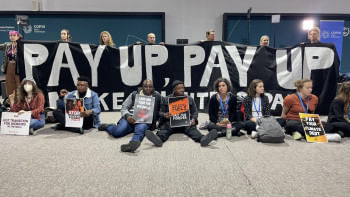UN rights chief says George Floyd murder case shows scale of systemic racism

The United Nations human rights chief on Wednesday welcomed as "momentous" the verdict in the George Floyd case which she said had highlighted how much remains to be done to end systemic racism against people of African descent in the United States.
Former Minneapolis police officer Derek Chauvin was convicted on Tuesday of murdering Floyd in May 2020, a milestone in the fraught racial history of the United States and a rebuke of law enforcement's treatment of Black Americans.
A 12-member jury found Chauvin guilty of all three charges of second-degree murder, third-degree murder and manslaughter after considering three weeks of testimony from 45 witnesses. The 45-year-old could face 40 years in prison.
"As the jury recognised, the evidence in this case was crystal clear. Any other result would have been a travesty of justice," UN rights chief Michelle Bachelet said.
She called for more cases of excessive use of force by police or killings by police to be brought before the courts, saying it was time for an end to such crimes going unpunished.
"This case has also helped reveal, perhaps more clearly than ever before, how much remains to be done to reverse the tide of systemic racism that permeates the lives of people of African descent."
Protesters in Minneapolis on Tuesday called for justice in the case of Daunte Wright, a Black man who was fatally shot by a police officer after a routine traffic stop on April 11, just a few miles from where Chauvin stood trial.
"As we have painfully witnessed in recent days and weeks, reforms to policing departments across the US continue to be insufficient to stop people of African descent from being killed," Bachelet's statement said.


 For all latest news, follow The Daily Star's Google News channel.
For all latest news, follow The Daily Star's Google News channel. 



Comments